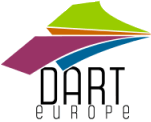Mostrar el registro sencillo del ítem
Reviewing Self-Injuries Behavior in Macaques: The Role of Early Experience and Genetics in an Integrated Non-Human Model
| dc.contributor.author | Molina Martín, Juan de Dios | |
| dc.contributor.author | Calle Real, Mario de la | |
| dc.contributor.author | Ramos Ruiz, Alfonso | |
| dc.contributor.author | López-Muñoz, F. | |
| dc.contributor.author | Muñoz Algar, María José | |
| dc.contributor.author | Andrade Rosa, Cristina | |
| dc.contributor.author | Toledo-Romero, F. | |
| dc.date.accessioned | 2018-06-26T13:17:53Z | |
| dc.date.available | 2018-06-26T13:17:53Z | |
| dc.date.issued | 2014-01-09 | |
| dc.identifier.issn | 2160-5866 | |
| dc.identifier.uri | http://hdl.handle.net/20.500.12020/760 | |
| dc.description.abstract | Genetic differences in non-human primates and the context where they were reared are important in the determination of their behaviors. Some studies suggest that Self-Injurious Behavior results from stress or anxiety, but some macaques appear to be more vulnerable to acquiring Self-Injurious Behavior. Vulnerability and risk for socially reared macaques of developing Self-Injurious Behavior increased when they experienced early adverse events and suffered from consequent stress. Stressful events can cause alterations in the neuroendocrine and neuropeptide systems associated with the regulation of stress and anxiety. Dysregulation in these systems contributes to the occurrence of anxious episodes that lead to self-harm. This could be used by those animals to counteract the effects of anxiety, causing euphoria by releasing endogenous opioids. In developing an integrative approach of Self-Injurious Behavior, we propose the diathesis-stress model to illustrate how the environment and genetics are influenced as well, taking rhesus monkeys as an example. Rhesus macaques and humans have essentially the same gene 5-HTT as well as functional polymorphism. The allelic variation in the region promoting the serotonin transporter gene (5-HTT) was associated with significant differences in the number of depressive symptoms and contributions to social reward and punishment. Growing up without the mother and the rearing environment are important risk factors for developing abnormal behaviors. The main idea is that monkeys who carry short 5-HTT allele and are reared with their peers (without their mother) suffer from neurobiological developmental delay, deteriorated serotonergic functioning and act more aggressively. Monkeys who carry short 5-HIAA allele and are reared with their mothers, though, show normal behavioral patterns. We could conclude that carrying the short allele of gene 5-HTT leads to a psychopathological tendency in macaques with a poor parenting history, but it may be adaptive for those who establish an attached relationship with their mothers. Stressful early experiences result in impaired 5-HTT expression as well. There are both specific genetic and environmental factors which pose a risk in the development of adverse responses to stress and environment. Rhesus macaques, as well as humans, show big individual differences in their responses to environmental stress. Some are very fearful and anxious, others are aggressive and impulsive. It is possible to identify genetic and environmental patterns that contribute to these differen | es |
| dc.language.iso | en | es |
| dc.publisher | SCIRP | es |
| dc.rights | Attribution-NonCommercial-NoDerivatives 4.0 Internacional | * |
| dc.rights.uri | http://creativecommons.org/licenses/by-nc-nd/4.0/ | * |
| dc.title | Reviewing Self-Injuries Behavior in Macaques: The Role of Early Experience and Genetics in an Integrated Non-Human Model | es |
| dc.type | article | es |
| dc.identifier.doi | http://dx.doi.org/10.4236/jbbs.2014.41005 | |
| dc.issue.number | 4 | es |
| dc.journal.title | Journal of Behavioral and Brain Science | es |
| dc.page.initial | 33 | es |
| dc.page.final | 42 | es |
| dc.rights.accessRights | openAccess | es |
| dc.subject.area | Psicología | es |
| dc.subject.keyword | 5-HTT | es |
| dc.subject.keyword | Primates | es |
| dc.subject.keyword | Allelic Variation | es |
| dc.subject.keyword | Diathesis-Stress Model | es |
| dc.subject.keyword | Self-Injurious Behavior | es |
| dc.subject.keyword | SIB | es |
| dc.subject.unesco | 6102.01 Psicología Evolutiva | es |





